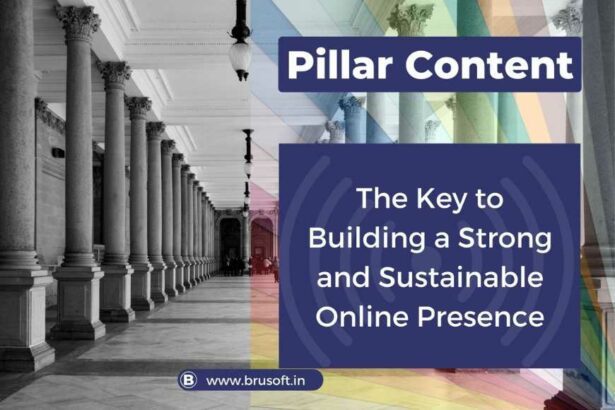7 Simple and proven best practices and optimization strategies to skyrocket your rankings.
Follow these simple and best practices to show on top of search results.
- What exactly search engine results (SERP) page?
- Understanding SERPs: What They Are and Why They Matter
- The Algorithm Behind SERPs: How Websites are Ranked
- Optimizing Your Website for SERPs: The Importance of Quality Content
- The Role of Inbound Links in SERP Rankings
- Enhancing User Experience for Better SERP Rankings
- New Elements on SERPs: Featured Snippets, Knowledge Panels, and Local Packs
- Staying Up-to-Date with SEO Best Practices for SERP Optimization
What exactly search engine results (SERP) page?
SERP stands for “Search Engine Results Page.” It is the page that appears after a user enters a query into a search engine, such as Google or Bing, and the search engine returns a list of relevant results.
The SERP typically includes a list of links to web pages, as well as other information such as images, videos, and news articles.
The SERP also includes paid advertisements and local listings. The goal of SEO is to rank higher on the SERP, in order to increase visibility and drive more traffic to a website.
Below is a screenshot of a search query “who is authorized dealer for janatics in coimbatore” and the result page.
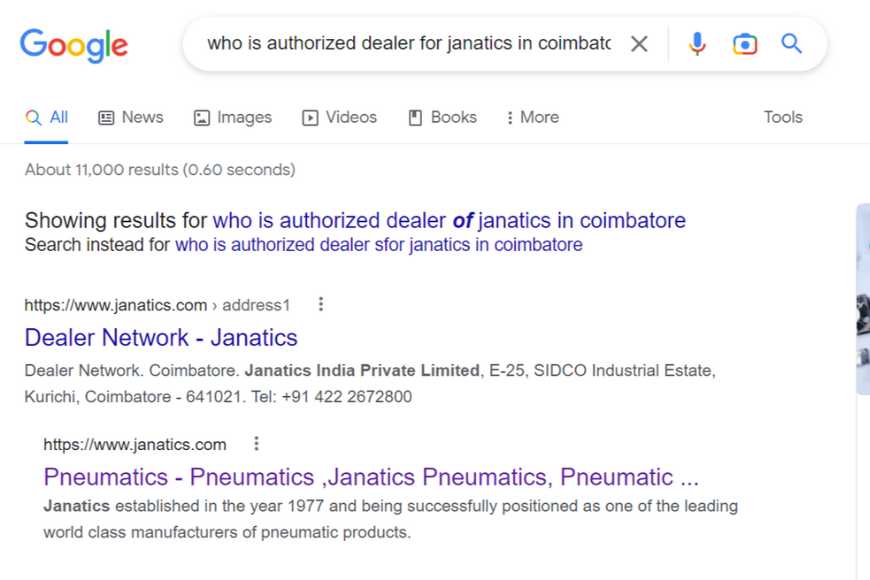
Understanding SERPs: What They Are and Why They Matter
Search Engine Results Pages, or SERPs, are the pages that come up when you type something into a search engine like Google or Bing.
These pages usually have a list of websites that are related to what you searched for, as well as other things like pictures or videos.
If you have a website or a business, it’s really important to understand how SERPs work so that your website can show up at the top of the list.
The Algorithm Behind SERPs: How Websites are Ranked
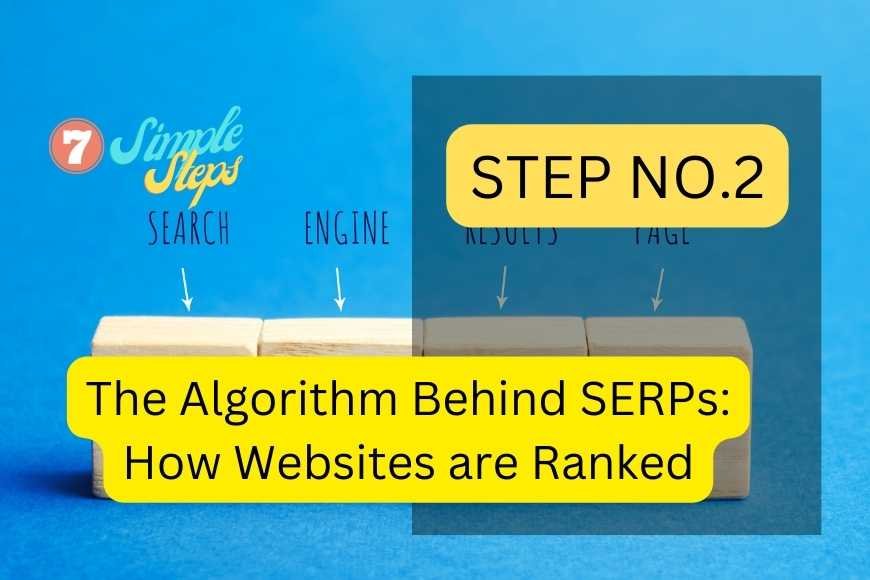
The way that SERPs decide which websites to show first is based on a secret formula that search engines use.
This formula takes into account a lot of different things like what’s on your website, how many other websites link to yours, and how easy it is for people to use your website.
Even though we don’t know exactly what’s in the formula, there are some things you can do to make sure your website does well on SERPs.
While the specific details of these algorithms are closely guarded by the search engines, there are a number of best practices that can be followed to improve a website’s chances of appearing at the top of SERPs.
Optimizing Your Website for SERPs: The Importance of Quality Content
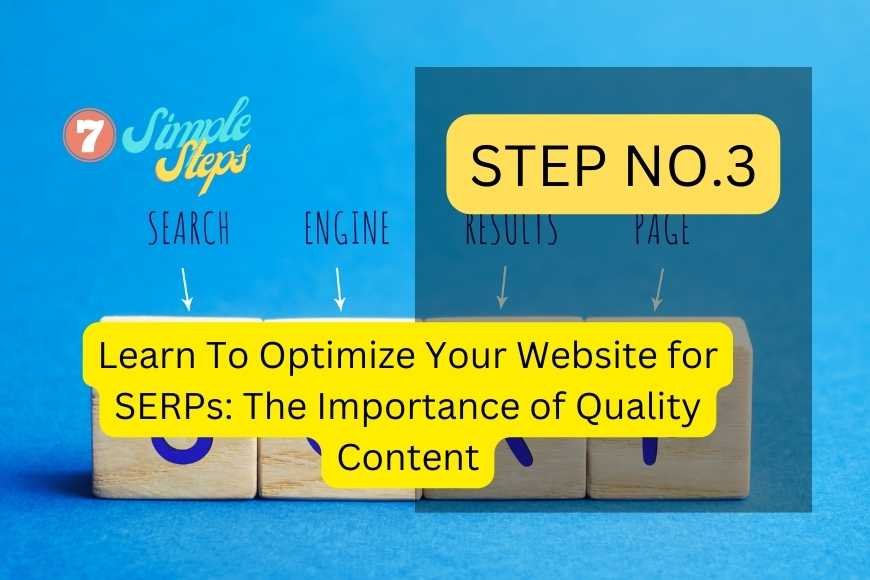
One of the most important things is to have good content on your website.
Search engines want to show people the most helpful and relevant websites, so it’s important that your website has information that is accurate and easy to read.
This includes things like text, pictures, and videos. It’s also important that your website is easy to navigate so that people can find what they’re looking for.
The Role of Inbound Links in SERP Rankings

Another important thing to think about is how many other websites link to yours. These links are called “inbound links” and they can help your website do better on SERPs.
The more links you have and the more important the websites are that are linking to yours, the better your website will do.
But it’s important to remember that not all links are the same, and having a lot of low-quality links can actually hurt your website.
Enhancing User Experience for Better SERP Rankings
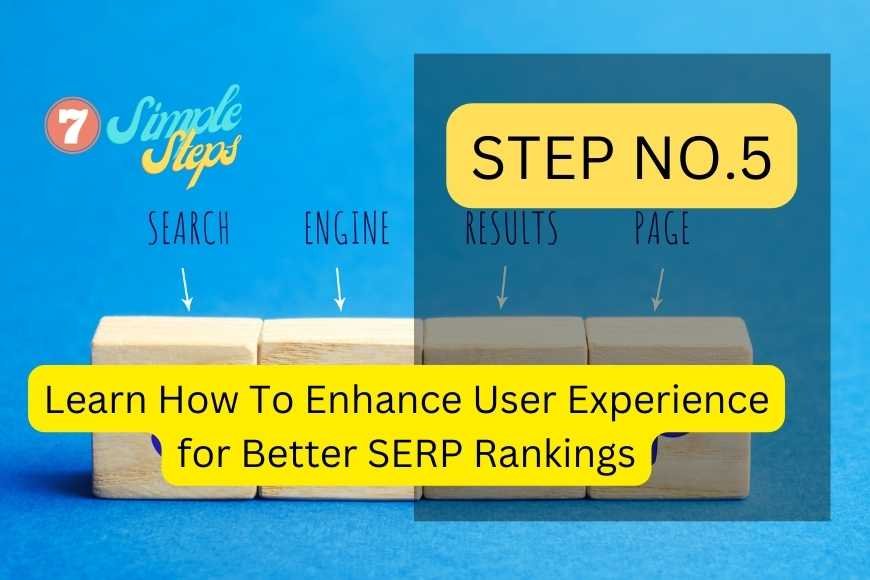
In addition to content and links, the way that people experience your website is also important.
Search engines want to make sure that people have a good experience when they use a website, so they look at things like how fast your website loads, how easy it is to use on a phone, and the overall design of your website.
Websites that are easy to use and quick to load will do better on SERPs.
New Elements on SERPs: Featured Snippets, Knowledge Panels, and Local Packs
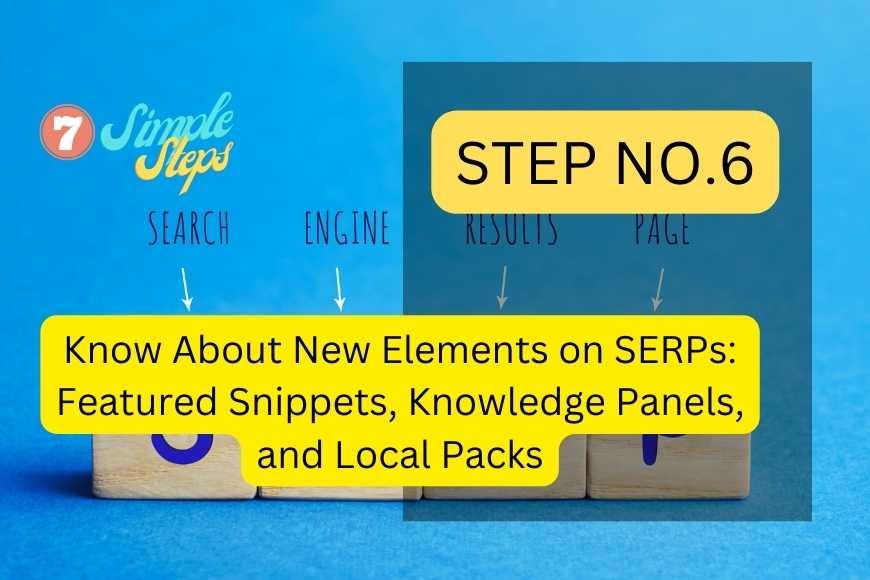
Recently, there are new things appearing on SERPs like featured snippets, knowledge panels, and local packs.
Featured snippets are short answers that show up at the top of the page, knowledge panels are blocks of information that show up on the right side of the page and local packs are sets of local businesses that show up at the top of the page.
Staying Up-to-Date with SEO Best Practices for SERP Optimization
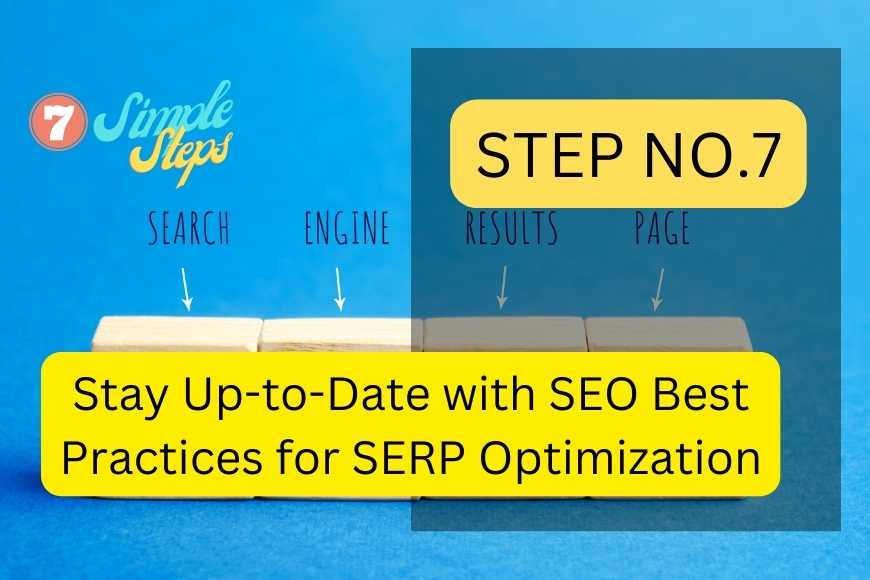
Google is always updating its algorithm and it’s important to keep updated with the latest search engine optimization (SEO) best practices to ensure your website is optimized for the best possible performance in Search Results Page.
This includes paying attention to Google’s official guidance, as well as monitoring the search engine results for your keywords.
SERPs are an essential part of the online landscape, and understanding how they work is crucial for any business or website owner looking to improve their visibility and search engine rankings.


